Concussion in football: is progress being made?
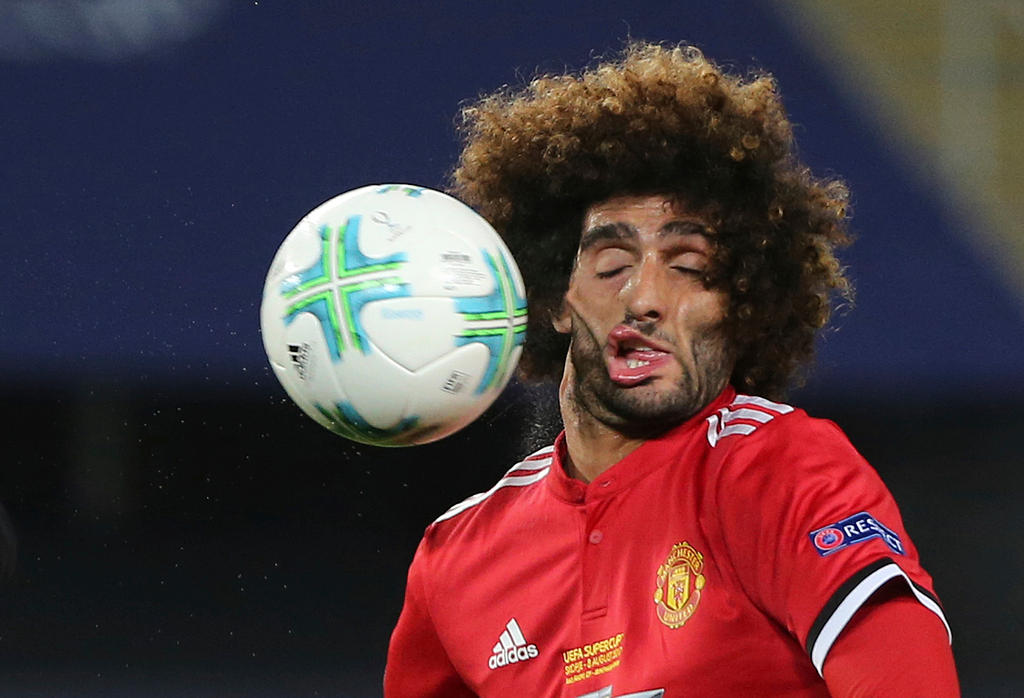
If a footballer is concussed, it’s probably best not to slap him in the face – as happened during the recent World Cup, says Raymond Beaard, spokesman for the players’ union FIFPro.
As the dust settles after Russia 2018, what has changed since Brazil four years ago, when several players suffered shocking head injuries?
swissinfo.ch: At the 2014 World Cup there were several serious head injuries. What has been the situation at this tournament?
Raymond Beaard: Well of course we noticed Morocco’s Nordin Amrabat in the match against Iran, which was a very bad example of concussion management [Amrabat hit his face hard on the grass following a clash of heads; he was then substituted].
I also read that there were problems with Ragnar Sigurðsson from Iceland in the match against Nigeria [Sigurðsson took an accidental knee to the back of the head and was bleeding heavily. He was patched up and continued playing] and Renato Tapia from Peru in the match against Denmark [Tapia was knocked out yet allowed to continue after a brief check before being substituted 13 minutes later].
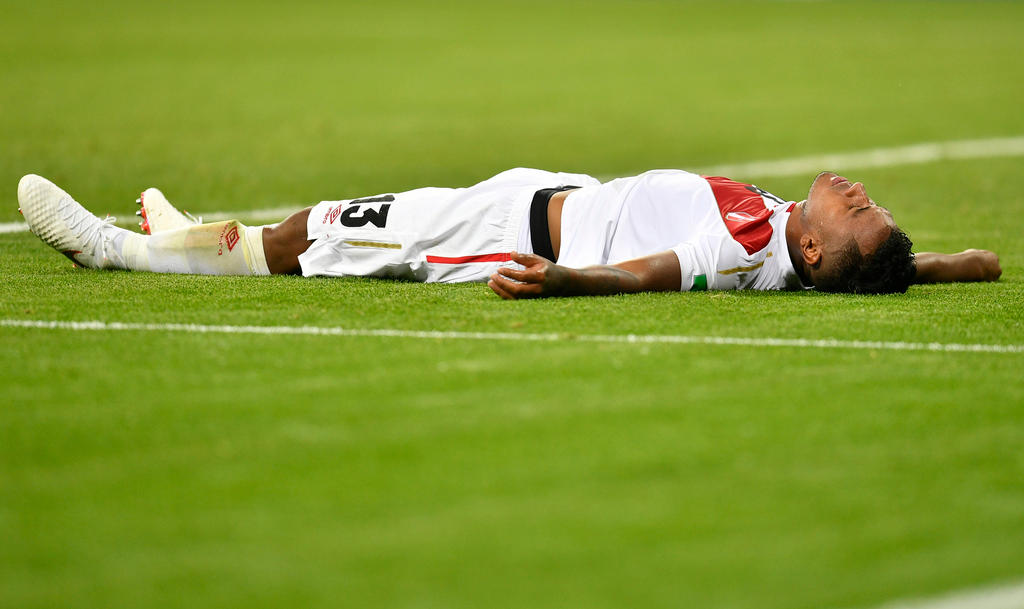
swissinfo.ch: What happened in the Amrabat incident. What should have happened?
R.B.: In our opinion, his treatment was not correct – even on the pitch. There was a doctor slapping him in the face and throwing water all over his head, thinking that might bring him back, which is of course ridiculous. He showed a lot of signs of having concussion and it’s fairly strange that someone’s slapping him in the face.
He was then taken off the pitch and went to the hospital after the match. He said he spent one or two days in the hospital and later said he didn’t recollect anything of what happened in the match. He remembered the kick-off and the next thing he knew he was in the hospital six hours later – he couldn’t recall talking with his brother after the match or the fact that his brother took his place as a substitute.
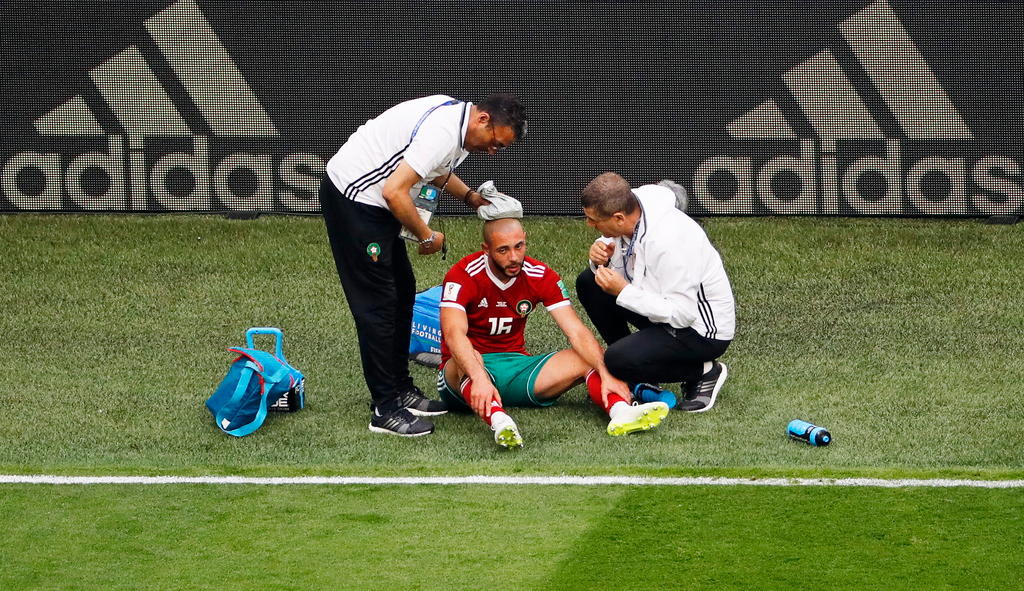
But five days later he played against Portugal, which is very strange because there’s a six-day protocol in place. This means each day you can take one step and if you pass the test for that day you can advance to the next step – so the earliest that he could play would have been seven days later. And he played five days later. He had a good game, but it’s crazy that afterwards he’s telling the media that he still had a bit of a headache. He said that before the match he’d had a discussion with the team doctor and the manager and he said he felt fine. The team doctor later more or less said that Amrabat had recovered so quickly thanks to Allah. That’s not a proper management of situations like this.
swissinfo.ch: FIFA, world football’s Zurich-based governing body, has no power to bench a player – it’s up to the team doctor, who is presumably under pressure from the manager to give important players the green light. Is this situation acceptable?
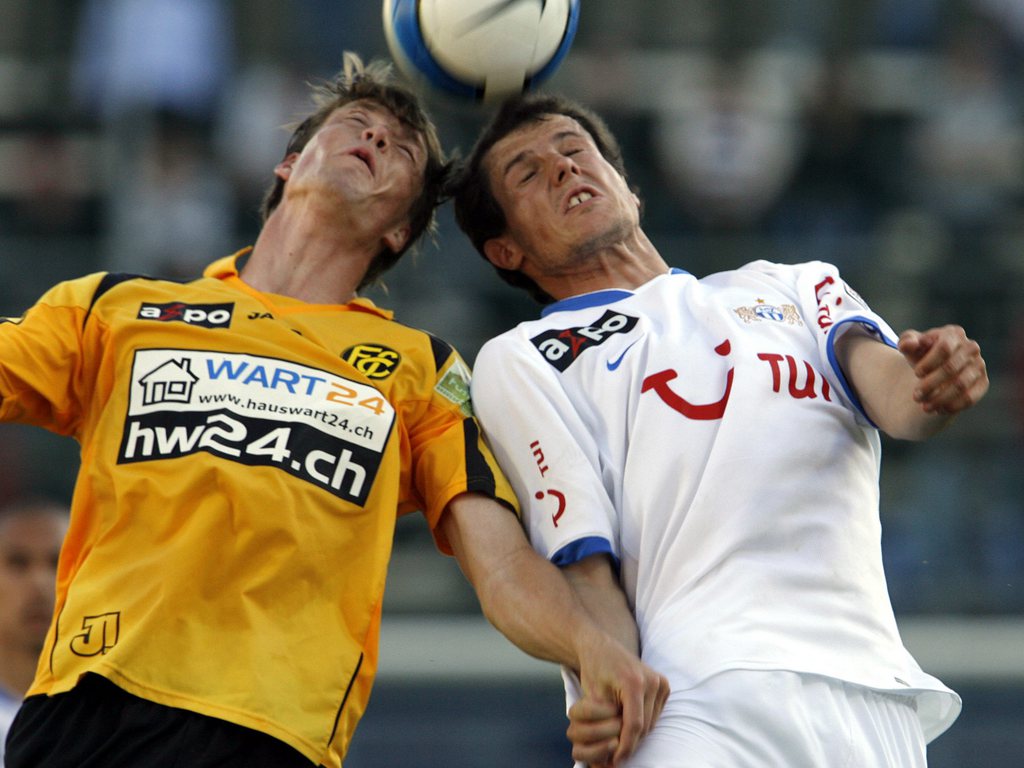
More
Concussion: FIFA and Swiss leagues put their heads together
R.B.: The problem is that you can have a very good set of rules, a very nice protocol – on paper everything is OK, but it has to be followed up and implemented on the pitch and respected by everyone involved. That means the team doctor is the only person who can decide whether a player should play or not. It should be totally independent of the wishes of the player or the manager.
A former Dutch team doctor said: ‘If you talk to the player, he is totally unreliable. You shouldn’t trust the player in this situation because the player only wants to play’. The manager only wants the best for his team and if he thinks the best player should be on the pitch, you can’t rely on that. So the team doctor must be totally independent.
swissinfo.ch: Are there plans to introduce independent FIFA doctors?
R.B.: At FIFPro we’re working on a concussion module and there was discussion on whether we need neutral doctors at venues. But the difficulty with that is an independent doctor doesn’t have the relationship with the player – he doesn’t know the player that well or at all – and he might not speak the language. This makes it a bit more awkward, so most of the time it’s better to have the team doctor there.
swissinfo.ch: So there won’t be neutral doctors in Qatar for the 2022 World Cup?
R.B.: I don’t think that’s really necessary. What is necessary is that there is a structure in place in which all teams and managers understand that it’s the team doctor who’s in charge when it comes to the health of the player and whether a player should play. They absolutely have to respect that.
swissinfo.ch: What has changed since 2014? Has progress been made?
R.B.: I think there’s a little bit more awareness. Before this World Cup FIFA addressed how team doctors should deal with these incidents – but then we come back to having the protocol, and things like that only work if people respect it.
If you look at what happened with Amrabat and some other players who stayed on the pitch after receiving a severe head injury and maybe concussion, you could say nothing has changed, but I think in the meantime the general public has become a little bit more aware about concussion – but not as much as we’d like.
+ Concussion recognition tool External link
This is one of the reasons we’ve been working on this concussion module, which we hope to release in the next couple of months. Our union representatives around the world will then take it into dressing rooms to inform players how to react when they notice a team mate or opponent showing symptoms of concussion – that they act immediately and don’t continue playing, because it can be very dangerous for the player’s health.
[Former England international] Jermaine Jenas, as a pundit on the BBC, was criticised this World Cup because he more or less praised a player for going back on the pitch after picking up a severe head injury. It’s nice to talk about heroes, but there are also a lot of heroes who now have mental health problems or permanent brain damage.
FIFA reaction
FIFA described Morocco’s decision to allow Nordin Amrabat to play against Portugal only five days after he suffered a concussion as “questionable”.
“Following the questionable handling of the concussion incident involving the Moroccan player, [Nordin] Amrabat, during the Morocco-Iran match, FIFA wrote to the Moroccan team doctor to remind him of the importance to adhere to the guidelines that have been communicated,” FIFA said in a statement.
“While the assessment and case management of concussion incidents falls under the sole responsibility of the respective team doctors, FIFA will address this matter with the Moroccan FA and, speaking in general terms, FIFA will monitor closely this matter throughout the competition.”
FIFA added that the Moroccan Football Federation would need to explain why Amrabat was allowed to play against Portugal.

In compliance with the JTI standards
More: SWI swissinfo.ch certified by the Journalism Trust Initiative

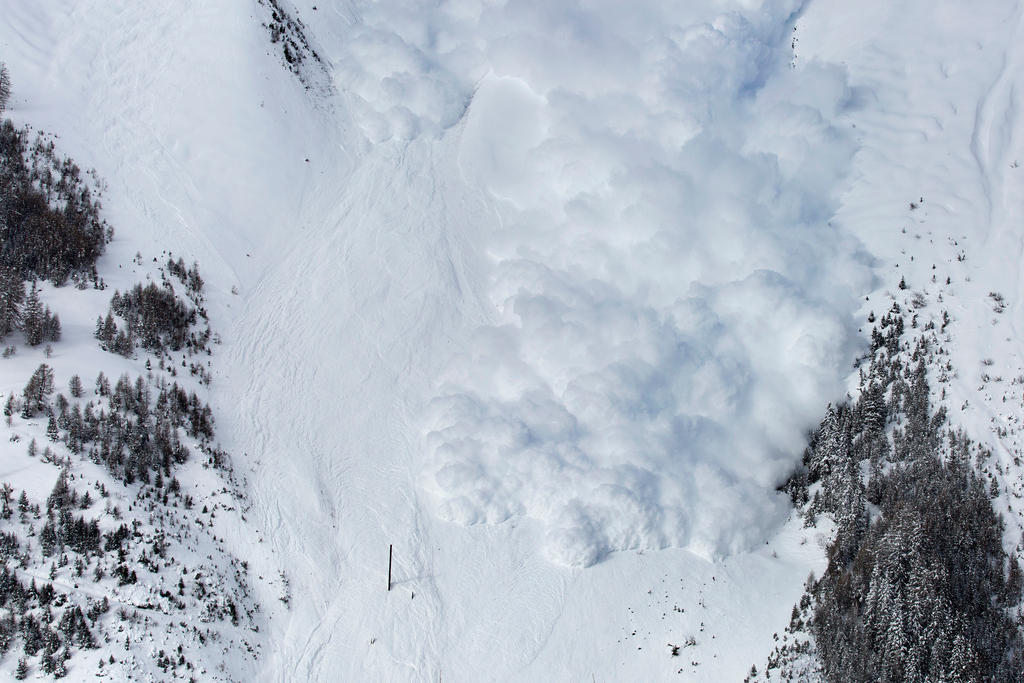
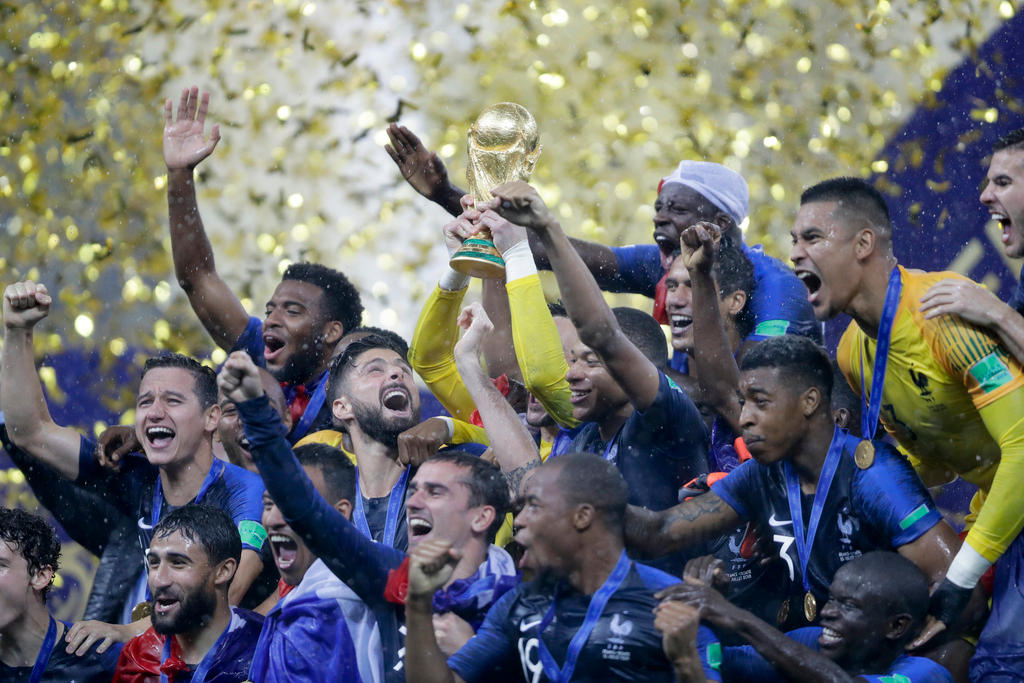
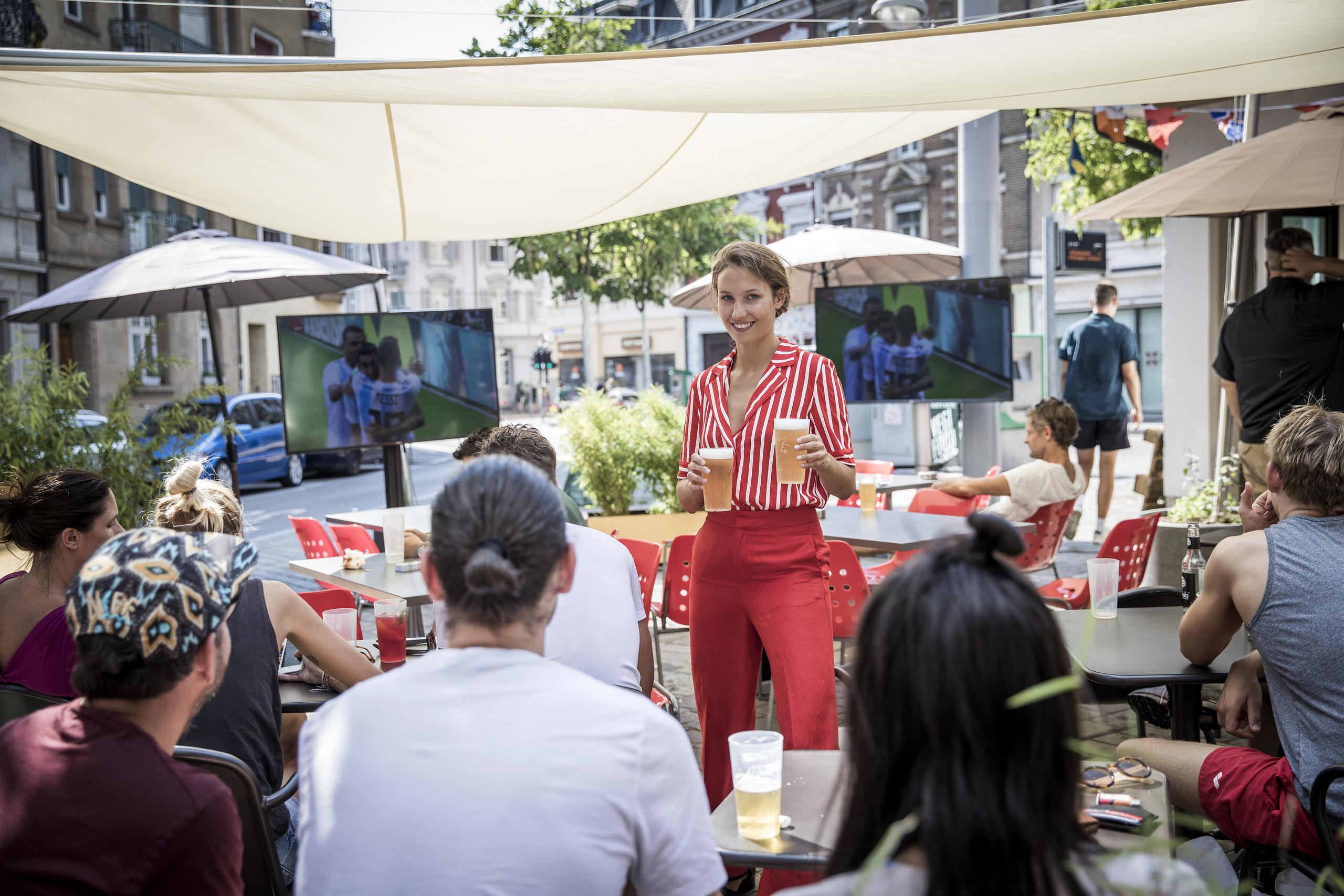
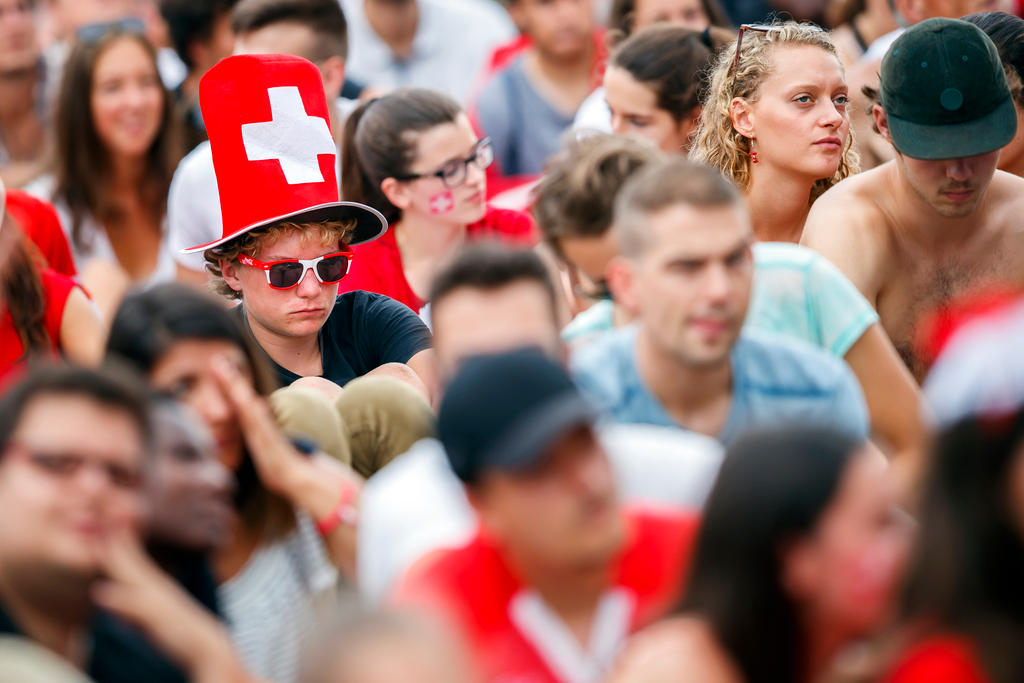
You can find an overview of ongoing debates with our journalists here. Please join us!
If you want to start a conversation about a topic raised in this article or want to report factual errors, email us at english@swissinfo.ch.